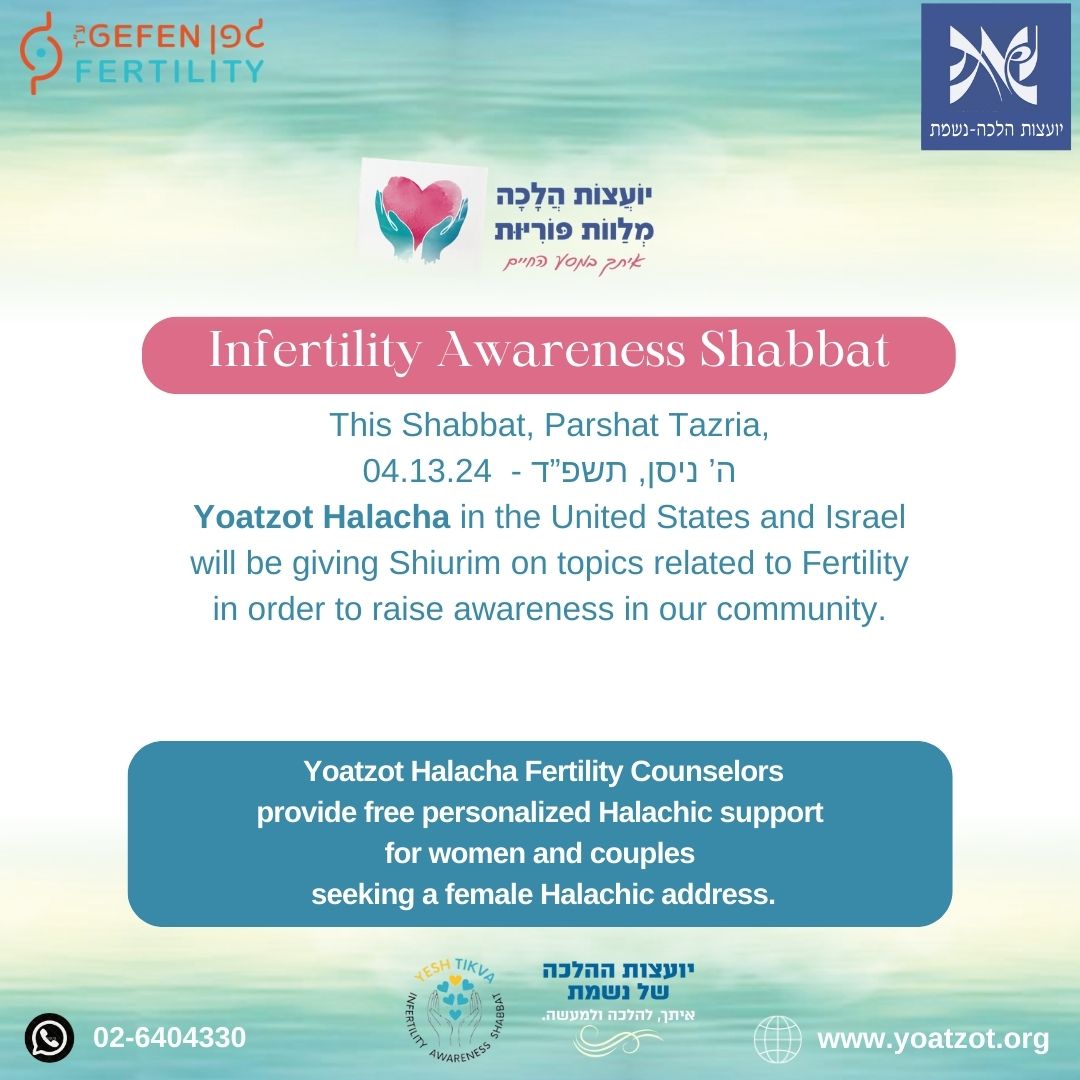Daytime staining discovered at night
14 December, 2015
 Question:
Question:I have been wondering this for a long time and now my circumstances have given me an opportunity to ask: What happens when the bleeding actually starts towards the end of one onah, and the woman discovers it at the beginning of the next?
For example: after shkiah, I discovered some stains (on colored sheets) on the bed where I had napped a few hours earlier (long before shkiah). I was puzzled, as I hadn't noticed any stains on my skirt or on other places I had sat during the last few hours, but when I checked I had indeed gotten my period (which I had been expecting). So was I niddah b'd'iavad, or does the status of niddah only take hold once the woman has noticed and declared herself niddah? Can I count yesterday as day 1 of my five days of bleeding and today as 2, or do I start from this evening? When calculating my vesatot for next month, do I use the day onah, or the night onah?
And out of curiosity: in this case it is clear that the bleeding started during the day. What about a case where it is not clear, for example if a woman discovers she has started bleeding shortly after dawn, when it could very well have been that she had started bleeding before?
Answer:In the situation you describe, even though the staining you found was definitely from the earlier onah, it did not make you niddah because it was on colored sheets. Your five day minimum and vesatot are both calculated from the later onah.
Even if the staining were larger than a gris and found on a white garment (which would make you niddah), the five day minimum would be counted from the later onah because you did not consider yourself niddah during the earlier onah.
Onot perishah are not calculated from staining, only from the onset of actual menstrual bleeding. Therefore, earlier staining – whenever it is discovered, and whether or not it makes you niddah – will not affect your veset calculations.
In a situation where a woman discovers bleeding and is unsure whether it began during that onah or the previous onah, she counts day 1 of her period (both for vesatot and for the five day minimum) from the onah in which she discovered the bleeding. This is true for veset calculations because she definitely was bleeding during the later onah, but there is doubt about whether she experienced bleeding during the previous onah. It is true for the five day minimum because that is counted from the point at which she considers herself niddah.
Please feel free to get back to us with any further questions.
This internet service does not preclude, override or replace the psak of any rabbinical authority. It is the responsibility of the questioner to inform us of any previous consultation or ruling. As even slight variation in circumstances may have Halachic consequences, views expressed concerning one case may not be applied to other, seemingly similar cases. All health and health-related information contained within Nishmat's Women's Health & Halacha Web site is intended to be general in nature and should not be used as a substitute for consulting with your health care professional. The advice is intended to offer a basis for individuals to discuss their medical condition with their health care provider but not individual advice. Although every effort is made to ensure that the material within Nishmat's Women's Health & Halacha Web site is accurate and timely, it is provided for the convenience of the Web site user but should not be considered official. Advice for actual medical practice should be obtained from a licensed health care professional.
For further questions or comments: 
The Nishmat Women's Health and Halacha Site is a public service of Nishmat, The Jeanie Schottenstein Center for Advanced Torah Study for Women. This project and others like it are made possible by contributions from people like you. If you have benefited from the service, and wish to enable us to help others, click here to donate.
Users of Internet filtering services: This site discusses sensitive subjects that some services filter without visual indication. A page that appears 100% complete might actually be missing critical Jewish-law or medical information. To ensure that you view the pages accurately, ask the filtering service to whitelist all pages under yoatzot.org.






 Question:
Question:







